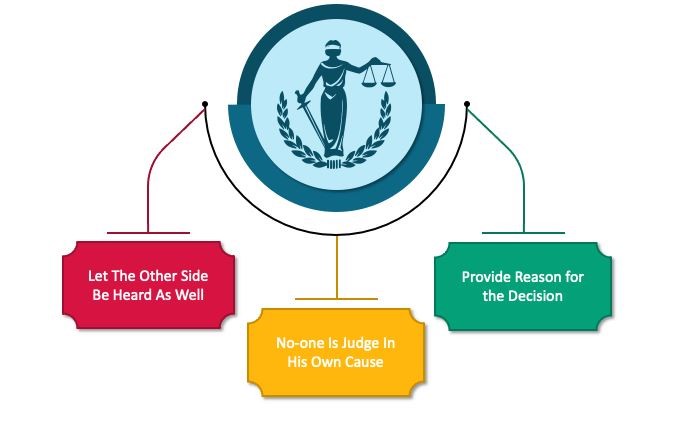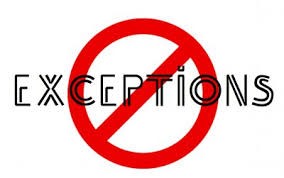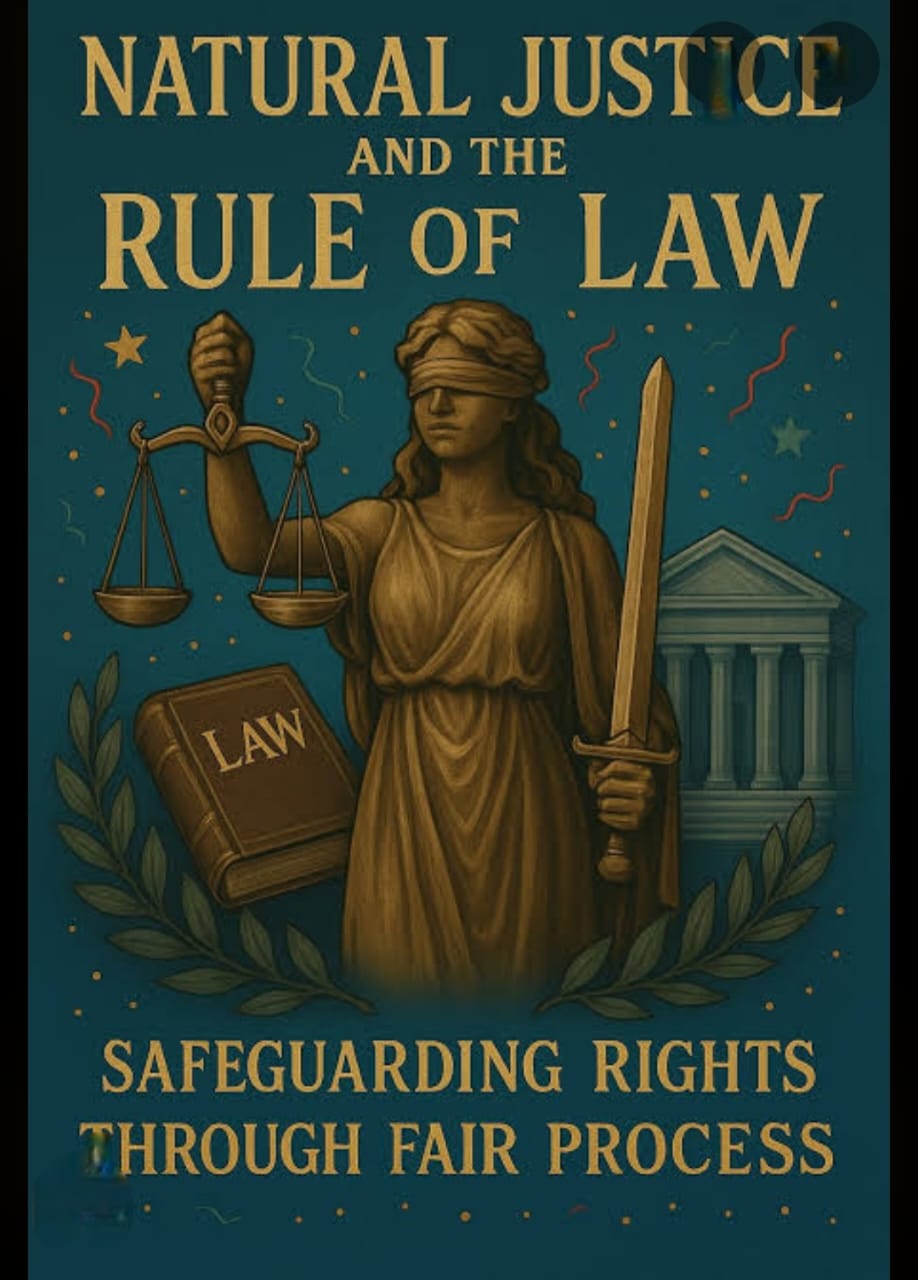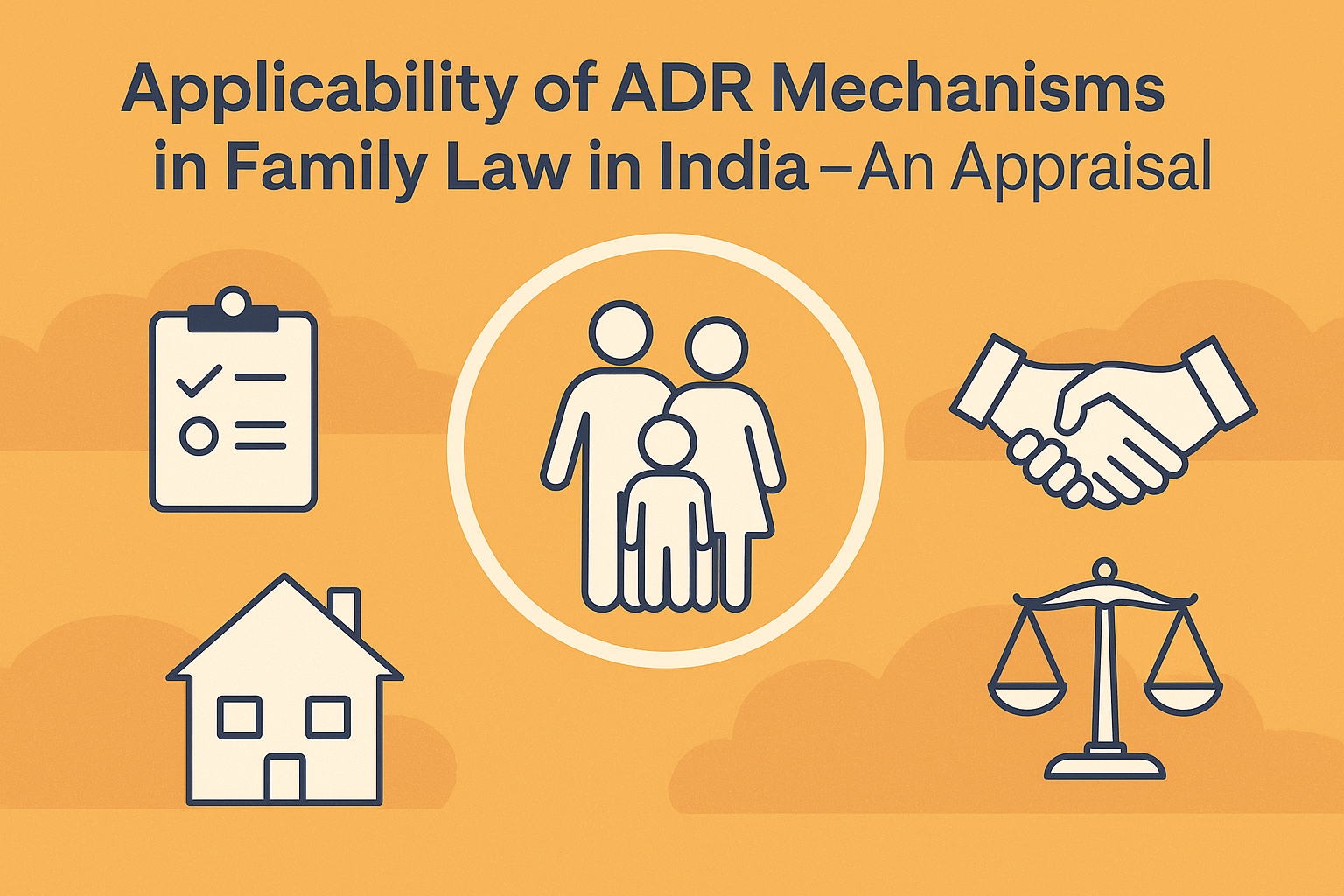Just imagine that you are in a court where one person is speaking into a microphone, but the other microphone is unplugged or their mouth is covered or their chair is empty. This completely shows the discrimination and the denial of the opportunity to be heard. To resolve this problem the principle of Natural Justice comes into play, this provides a solution to this type of grave problems so that each individual gets an equal opportunity to express their thoughts. Just like in this situation to provide justice for everyone what should have been done? Both the individuals should have been given proper microphones to express their thoughts and in case empty chair a proper summon should have been provided to call him/her to the court.
INTRODUCTION
Principles natural justice insists that every decision should be taken fairly without biasness there should be complete transparency and impartiality. Its basic aim is that justice should not be derived merely from words but it should also been seen This principle operates in all the jurisdiction but in India it is constitutional interpretation of article 14 and 21 of the constitution Maneka Gandhi v. Union of India is the major example of this Law.
The principle of natural justice is basically dependent on three major principles
- Hearing Rule :- Audi Alteram Partem No person should be judged without giving a proper opportunity to be heard
- Bias Rule :- Nemo Judex In Causa Sua No one should be made judge in his own case
- Reasoned Decision :- Speaking Orders Every decision should be based on proper valid reasons to ensure trust, transparency and order
HISTORY AND ORIGIN
The concept of Natural justice has been evolved from Roman law in the form of jus naturale which shows the ideas of equity and morality. In English common law justice evolved from jus naturale which emphasizes on the fact that justice must always be fair. Over times this doctrine has been protecting the interests of the people in the court from all unlawful and unfair exercises.
In India the principles of natural justice has more rich and constitutional background. These concepts were not earlier the part of constitution but later on they were added in the constitution through article 14 and 21 of Indian constitution. This is recited by the supreme court for the numerous times that there should fairness and reasonability while providing the decisions. Just like in the case of Maneka Gandhi v Union of India a base of interpretation of law was given that how should be the every individual should be treated and the procedure of judgement should be fair, just and reasonable
Core Principles Explained

- Audi Alteram Partem: It is a Latin word which literally means Right to be heard.
It is a legal maxim which constantly enforces that every individual should be heard irrespective his standard or background. Justice should be given to both the parties. This maxim strongly suggests that no should be held liable or judged without a fair hearing. The motive of this maxim is to provide a fair opportunity to other party to respond to the evidence framed or provided against him
Case law: The supreme of India in Maneka Gandhi v. Union of India notably stated that there should be procedural fairness as the integral part of part of article 21 which guarantees the individuals liberty and if there is any deprivation of persons liberty it should be fair just and reasonable
- Nemo Judex In Causa Sua- It is a Latin word which literally means that No one should be made judge in his own cause
According to this maxim the decision maker should be impartial or unbiased while giving the decision while discussing the disputes. They should not have any personal or financial in the matter being decided
Case Law: In A.K Kraipak v. Union of India the supreme court stated that administrative bodies should be fair and impartial in holding that a selection for Indian forest service was invalid due to bias as one of the selection board ,members was also a candidate. This applies that administrative actions are not just judicial but Quasi-judicial one
- Duty to Give Reasons– A reasoned order demonstrates that the decision-maker gave the matter thought and assessed evidence in a rational way. Reasoned orders allow for review, increase transparency, and allow the person affected to understand the basis of the decision
Case law: In Siemens Engineering & Manufacturing Co. v. Union of India. Under this it was stated that there is the necessity of the court to provide the reasons for accountability and effective judicial review
Exceptions and limitations

Despite of it being a fundamental principle it has some limitations of these principles
- Urgency and public safety: In case of urgency and public security the procedure requirements may be ignored.
- Confidentiality: It is a condition in which some facts can harm the public interests, under this conditions a confined proceedings can be undertaken.
- Legislative Functions: When law is passed it is applicable on all the individuals it does not require separate trials for everyone.
Constitutionally anchoring in India
Natural justice is not just a common law India but it is constitutionally enforced on all the individuals. Article 14 Guarantees equality before law and Article 21 Guarantees life and personal liberty which ensures that procedure is fair, just and reasonable
Natural Justice as per judicial power is not a formal restriction but it demands that the procedure should be fair, just and reasonable as stated in Mohinder Singh Gill v. Chief Election Commissioner.
Modern Era Challenges
- In today’s time the legal cases are complex which make it difficult for the parties to respond analyze evidence and present their case.
- Sometimes there are strict application like the once against bias can be inflexible which leads to biased decision making and preventing potential qualified people to take part in decision making
- The principles of natural justice can lead to lengthy and expensive legal processes, particularly in complex cases, which can be problematic when a quick resolution is needed.
Conclusion
At end it can be concluded that principle of natural justice ensures fairness, equality and transparency in every decision. It is fundamental principle which protects the person from being bias and gives everyone a fair chance to be heard .Even though the law is evolving the principles of natural justice remains the heart of each judgement. What do you think- As the system become faster and more automated, can justice still remain truly natural?
References
A.K. Kraipak v. Union of India, A.I.R. 1970 S.C. 150 (India).
Maneka Gandhi v. Union of India, (1978) 1 S.C.C. 248 (India).
Siemens Eng’g & Mfg. Co. v. Union of India, (1976) 2 S.C.C. 981 (India).
Lawexplorer.com & Manupatra
Written by
Kanav Kalra
BA LLB HONS
FIRST YEAR
LOVELY PROFESSIONAL UNIVERSITY




